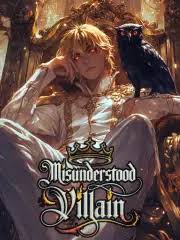The Story in 3 Sentences
Cast out and grieving, Jack Alfonso flees his powerful family’s shadow with nothing but his savings, seeking anonymity in a backward city to build a life from scratch.
His destiny violently shifts when a simple grocery store purchase triggers the “Hundred Times Income Multiplier System,” instantly transforming his meager earnings into vast wealth and gifting him absurd luxuries like Bugattis and helicopters, setting him on a path of explosive, system-fueled ascension.
Fueled by newfound power and a burning desire for vengeance against those responsible for his mother’s death, he turns his sights on dismantling the very Alfonso empire that discarded him, aiming to become richer and more powerful than they ever were.
Why It Stands Out
1. The Absurdity is the Point
This novel leans hard into its own ridiculousness. The core premise—a system that multiplies any legitimate income by one hundred—is inherently over-the-top, and the story embraces it fully. Jack doesn’t just get rich; he gets ludicrously, instantaneously rich, buying Bentleys for grocery clerks and private jets after his first sale. It’s a pure, unadulterated power fantasy where financial logic is gleefully thrown out the window for the sake of maximum, dopamine-fueled wish fulfillment. You’re not here for realism; you’re here to watch the underdog drown his enemies in a tsunami of multiplied cash.
2. A Simple, Satisfying Revenge Arc
The emotional core is straightforward and potent. Jack’s motivation isn’t world domination for its own sake; it’s deeply personal. Bullied by his half-siblings and shattered by his mother’s mysterious death, his quest for wealth is intrinsically tied to making his family regret their cruelty and uncovering the truth. This clear, vengeful direction gives the chaotic spending and system rewards a narrative anchor, transforming random acts of wealth into calculated steps towards a cathartic payoff. The promise of the Alfonso family’s downfall is the engine that drives the entire, extravagant journey.
3. Urban Fantasy Meets Corporate Warfare
It takes the common cultivation or dungeon system trope and transplants it into a modern, corporate setting. Instead of fighting monsters for loot, Jack fights market competition and corporate espionage, with his “cultivation” being the exponential growth of his bank account. His weapons are not swords but business deals, hostile takeovers, and the sheer, overwhelming force of his system-boosted capital. This unique blend creates a fresh kind of power fantasy where boardrooms and stock markets become the new battlegrounds, and success is measured in billions, not battle levels.
Characters That Leave a Mark
There’s Kevin Dante – the formidable head of the rival Dante family, whose deep voice and commanding presence signal a major power player capable of giving Jack significant trouble, including the audacious act of kidnapping his lover .
You’ll meet George, who, despite his seemingly low-profile role as a delivery employee, holds surprising influence and a hidden connection to the powerful Dante family, becoming an unexpected linchpin in Jack’s decision to forgive his enemies .
And Bella? She’s the one who impresses Jack with her natural capability and rapid improvement, hinting at a significant role in his operations even without formal, system-granted training .
The Flaws Fans Debate
The economic system is fundamentally broken, with no clear currency or realistic pricing, making Jack’s spending sprees feel arbitrary and immersion-breaking.
The protagonist, Jack, is frequently criticized for his low intelligence and impulsive, often unnecessarily violent actions, which can frustrate readers seeking a more strategic or nuanced hero.
His interactions with female characters, particularly his “fated lover,” are marred by outdated and dismissive attitudes, with his internal monologue often reducing them to “just a woman,” which clashes jarringly with the supposed romantic plot.
Must-Experience Arcs
Ch. 1–10: The Spark of the System – Jack arrives in Inchoate City, buys his first humble grocery store, and experiences the life-altering, reality-bending shock of his first system activation, receiving his initial windfall and extravagant rewards like the Bugatti and helicopter.
Ch. 300–350: The Dante Confrontation – The simmering rivalry with the Dante family boils over, leading to high-stakes corporate battles and the dramatic kidnapping of Jack’s lover, forcing him into a complex web of revenge, negotiation, and an unexpected act of forgiveness tied to George.
Ch. 600–620: Beyond the Multiplier – In the final chapters, Jack pushes his system to its absolute limits, venturing into domains where the hundred-times effect itself is challenged or nullified, forcing him to rely on his own strength and resources for the ultimate confrontation and resolution.
Killer Quotes
“Under the power of money, everything is worthless.”
“The winner is king and the loser is a bandit.”
“Death isn’t scary, what’s scary is not being able to control your own destiny. Your fate is in your own hands”
Cultural Impact
The novel has garnered a dedicated, if sometimes critical, fanbase on WebNovel, sparking passionate debates in its review section about its economic logic and character writing.
Readers have created memes and inside jokes around the absurdity of Jack’s spending, particularly the infamous scene where he buys luxury cars for his entire grocery store staff on day one.
Its sheer, unapologetic commitment to the power fantasy trope has made it a notable, if polarizing, example within the urban system genre, often recommended as a “guilty pleasure” or a starting point for new readers.
Final Verdict
Start Here If You Want:
A pure, over-the-top financial power fantasy where the underdog wins by drowning his problems in multiplied cash.
A straightforward, emotionally-driven revenge story with a clear villain and a satisfying, if extravagant, path to victory.
Fast-paced, low-stakes escapism where logic takes a backseat to spectacle and wish fulfillment.
Study If You Love:
Analyzing how system-based narratives adapt traditional xianxia tropes into modern, urban settings.
Exploring the psychology of revenge narratives and how they drive character motivation in popular fiction.
The cultural phenomenon of “guilty pleasure” web novels and their appeal despite acknowledged flaws in writing or logic.
Avoid If You Prefer:
Realistic economic systems or protagonists who display consistent strategic intelligence.
Nuanced character development or progressive, respectful portrayals of romantic relationships.
Stories where power is earned gradually through hard work and skill, rather than granted instantly by a deus ex machina system.





